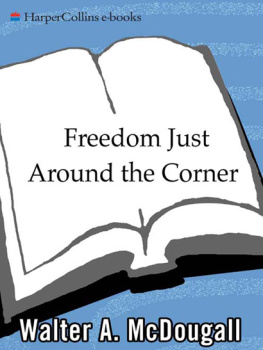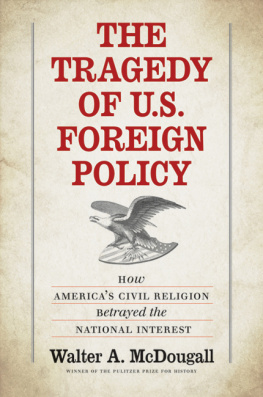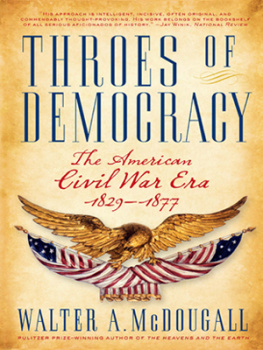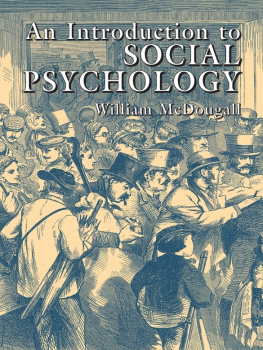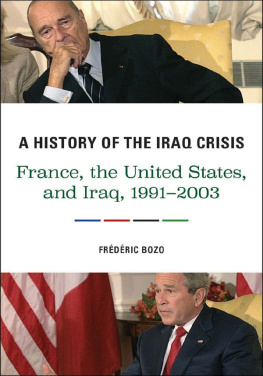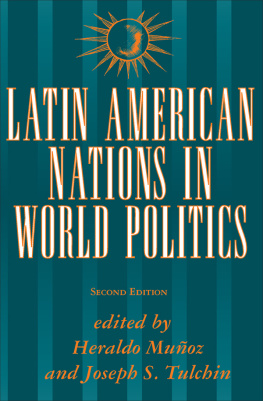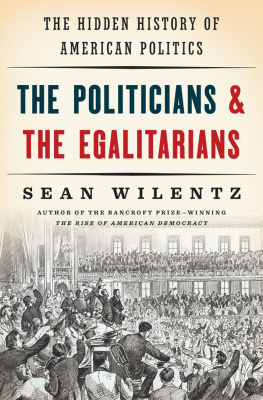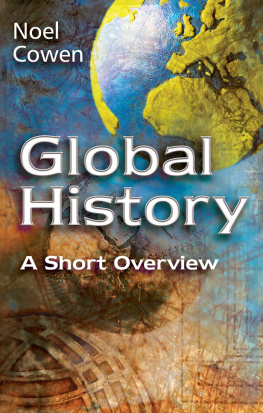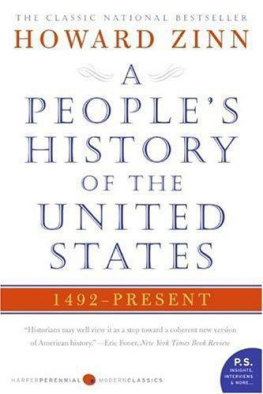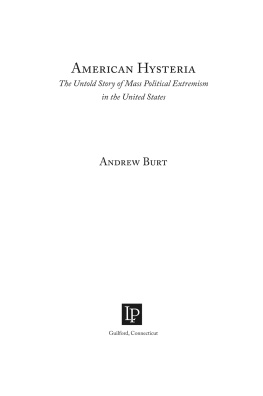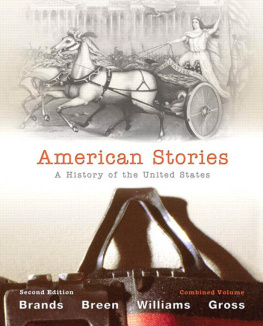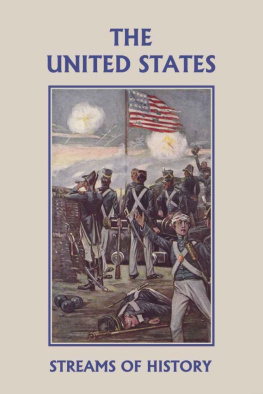McDougall - Freedom just around the corner: a new American history, 1585-1828
Here you can read online McDougall - Freedom just around the corner: a new American history, 1585-1828 full text of the book (entire story) in english for free. Download pdf and epub, get meaning, cover and reviews about this ebook. City: New York;United States, year: 2005, publisher: HarperCollins;Perennial, genre: Romance novel. Description of the work, (preface) as well as reviews are available. Best literature library LitArk.com created for fans of good reading and offers a wide selection of genres:
Romance novel
Science fiction
Adventure
Detective
Science
History
Home and family
Prose
Art
Politics
Computer
Non-fiction
Religion
Business
Children
Humor
Choose a favorite category and find really read worthwhile books. Enjoy immersion in the world of imagination, feel the emotions of the characters or learn something new for yourself, make an fascinating discovery.
- Book:Freedom just around the corner: a new American history, 1585-1828
- Author:
- Publisher:HarperCollins;Perennial
- Genre:
- Year:2005
- City:New York;United States
- Rating:5 / 5
- Favourites:Add to favourites
- Your mark:
- 100
- 1
- 2
- 3
- 4
- 5
Freedom just around the corner: a new American history, 1585-1828: summary, description and annotation
We offer to read an annotation, description, summary or preface (depends on what the author of the book "Freedom just around the corner: a new American history, 1585-1828" wrote himself). If you haven't found the necessary information about the book — write in the comments, we will try to find it.
Freedom just around the corner: a new American history, 1585-1828 — read online for free the complete book (whole text) full work
Below is the text of the book, divided by pages. System saving the place of the last page read, allows you to conveniently read the book "Freedom just around the corner: a new American history, 1585-1828" online for free, without having to search again every time where you left off. Put a bookmark, and you can go to the page where you finished reading at any time.
Font size:
Interval:
Bookmark:
To the immigrant Barclays, Brueggemans, McDougalls, and Voltzes,
thanks to whom I am American
Standing on the waters casting your bread
While the eyes of the idol with the iron head are glowing.
Distant ships sailing into the mist,
You were born with a snake in both of your fists while a hurricane was blowing.
Freedom just around the corner for you
But with truth so far off what good will it do?
Jokerman dance to the nightingale tune,
Bird fly high by the light of the moon,
Oh, oh, oh, Jokerman.
B OB D YLAN
What Some Great Novels Tell Us About Ourselves
The Original Spirits of English Expansion
The Chesapeake, New Netherlands, and New England, 16071660
The Carolinas, Middle Colonies, and New England, 16601689
Colonists at War, Business, and Prayer, 16891740
Peoples and Cultures of the Thirteen Colonies to 1750
The French and Indian Wars Turn Britain into the Enemy, 17401763
Why Independence Became an Imperative, 17631775
The Not-So-United States, Hustling to Be Born, 17761783
The Brilliant Coups That Begat the Constitution, 17831790
Freemasonry, Republicanism, and Americas Future, 17911800
Having Fashioned a State, Americans Turn into a Nation, 18011815
The Rise of the West, 18161828
Apotheosis and Apocalypse in American Culture, c. 1830

The first American political cartoon appeared in Benjamin Franklins Pennsylvania Gazette on May 9, 1754. During the run-up to the climactic French and Indian War, Franklin implored the American colonies to Join or Die. In this version, which appeared in the Boston Gazette on May 21, 1754, the snake hisses a tempting corollary: Unite and Conquer. (Courtesy of the Massachusetts Historical Society, Boston)

The rattlesnake motif graced any number of battle flags, standards, uniform buttons, posters, and pamphlets during the American War of Independence, not least the first U.S. Navy jack with its thirteen red and white stripes, snake, and warning, Dont Tread on Me. This banner, carried by the First Virginia regiment of militia in 1775, added the equally popular slogan Liberty or Death. (From Benson John Lossing, Pictorial Field Book of the Revolution [New York: Harper & Brothers, 1860])
T he creation of the United States of America is the central event of the past four hundred years. If some ghostly ship, some Flying Dutchman, were transported in time from the year 1600 into the present, the crew would be amazed by our technology and the sheer numbers of people on the globe, but the array of civilizations would be recognizable. There is today, as there was then: a huge Chinese empire run by an authoritarian but beleaguered bureaucracy; a homogeneous, anxious, suspicious Japan; a teeming crazy quilt of Hindus and Muslims in India attempting to make a state of themselves; an amorphous Russian empire pulsing outward or inward in proportion to Muscovys projection of force; a vast Islamic crescent hostile to infidels but beset by rival centers of power; a dynamic, more-or-less Christian civilization in Europe aspiring to unity but vexed by its dense congeries of nations and tongues; and finally an Iberian/Amerindian culture in South America marked by relative poverty and strategic impotence. The only continent that would astound the Renaissance time-travelers would be North America, which was primitive and nearly vacant as late as 1607, but which today hosts the mightiest, richest, most dynamic civilization in historya civilization, moreover, that perturbs the trajectories of all other civilizations just by existing.
One might object the most salient features of modern history have not been territorial and demographic, but intellectual and political: the invention and spread of enlightened ideas of human rights and democratic self-government on the one hand, and the scientific and technological explosions in human power on the other hand. That is so, but the rise of America goes far to explain the rapidity and scale of their triumphs. North America was simply the greatest prize in the world circa 1600, and the fact Britons won that prize rather than Spaniards, Frenchmen, Chinese, or Russians explains the shape of modern history more than anything else. I used to disparage American history as a relatively provincial field of research. I now realize trying to make sense of America is nothing short of heroic (unless it be foolish). For if historians aim to explain change over time, then the United States is the most swiftly moving target of all, because nowhere else has more change occurred in so short a span. America was not just born of revolution, it is one.
At an early stage I chanced to describe this new project to a distinguished senior scholar and mentor. I expected to receive a blessing from this man of goodwill that might relieve the anxiety I felt over the undertaking. Instead, he asked me a question: Do we really need another American history? My eyes fell to the pavement of the Lower Manhattan street, and I croaked, I dont know. Probably not.
What, after all, did I have to say about the United States that had not already been written by Henry Steele Commager, Samuel Eliot Morison, Arthur Schlesinger, Jr., Richard Hofstadter, Oscar Handlin, Carl Degler, and others? How many times did the stories of Jamestown and Plymouth Rock, Valley Forge and the Constitutional Convention, the Erie Canal and the Civil War, the Progressive Era and the Great Depression, World War II and the Civil Rights Movement need to be told? What could I say about our national past that would be both original and defensible? What indeed, given I was not even formally trained in American history and thus risk whatever remains of my professional reputation? But the faith of others won out, for better or worse.
Cass Canfield, Jr., and Hugh Van Dusen of HarperCollins hatched the idea of a narrative history that would avoid the extremes of condemnation and celebration of the American past characterizing the Howard Zinn and Paul Johnson titles already on their list. They imagined a cool, objective book telling Americans candidly who and why we are what we are. Steve Fraser suggested my name to them, and Gerry McCauley urged me to accept their offer. I thought it all over during a solo automobile trip to New Hampshire and back. Did I have some new notion of what made Americans exceptional, some additional insight into the American character? Perhaps not, but I had lots of ideas about specific eras and themes I wanted to test. For instance, existing U.S. histories, whatever their slant, display little appreciation (much less forgiveness) of the flawed human nature that makes Americans un exceptional. Perhaps that is why our great national narratives contain so little humor: whether they extol or condemn the American experience, they take it terribly seriously. I also realized while driving through upper New England how much I love the fifty United States (all of which I have lived, worked, or traveled in save North Dakota and Oregon). At length, I decided to learn the history of my country whether or not I had much to teach.
But I couldnt tell that to the editors. So I sent them upon my return a list of themes worthy of emphasis in a new U.S. history. First, geography, being the reconnaissance, conquest, and settlement of the North American continent, and the challenges and chances posed by its lands, woods, and waters. Second, technology, being the tools Americans fashioned to tame and develop the continent. Third, demography, being the ways in which the numbers, origins, customs, and values of those who peopled America expanded and sometimes restricted the nations choices. Fourth, mythology, which is to say the construction of Americas civic religion and its problematical coexistence with multiple forms of Christianity. Fifth, the federative power, a concept coined by Ambassador Robert Strausz-Hup to describe the unique power of American institutions and ideology to knit together diverse territories and peoples while relieving the tension between their ideals of liberty and equality.
Font size:
Interval:
Bookmark:
Similar books «Freedom just around the corner: a new American history, 1585-1828»
Look at similar books to Freedom just around the corner: a new American history, 1585-1828. We have selected literature similar in name and meaning in the hope of providing readers with more options to find new, interesting, not yet read works.
Discussion, reviews of the book Freedom just around the corner: a new American history, 1585-1828 and just readers' own opinions. Leave your comments, write what you think about the work, its meaning or the main characters. Specify what exactly you liked and what you didn't like, and why you think so.

